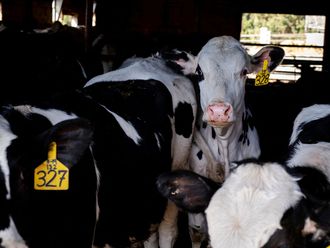Mexico: The former president of Costa Rica and Nobel laureate scar Arias Snchez has been accused of sexual assault by a psychiatrist and antinuclear activist who says she met frequently with the former leader on disarmament issues.
The allegation was reported Tuesday by Semanario Universidad, a local newspaper, and the New York Times. In interviews with both publications, the accuser explained that, at one of her meetings with Arias, he approached her from behind, touched her breasts and penetrated her with his fingers. She filed a criminal complaint against Arias this week.
In a second allegation, Emma Daly, the head of communications at Human Rights Watch, told The Washington Post in an interview Tuesday that Arias groped her in 1990, when she was a reporter covering Central America and while he was still president.
The accusations threaten to cast a dark cloud over the legacy of one of Costa Rica's most celebrated leaders. Arias was awarded the Nobel Peace Prize in 1987 for his work in ending Central America's brutal civil wars. He was president of Costa Rica for two periods, from 1986 to 1990 and from 2006 to 2010.
"I had this fear that if I refused, he would not cooperate with us anymore," the accuser told Semanario Universidad of the encounter, which she said occurred in 2014, referring to her hopes to engage Arias on disarmament issues.
"I did not know what to do. I felt trapped in that moment," she said.
She could not be reached by The Post. An official at the International Physicians for the Prevention of Nuclear War, where she once worked as a volunteer, said he believed she was not interested in speaking further about the incident. The Post generally does not name victims of sexual assault, alleged or proved, without their permission.
In a statement through his attorney Rodolfo Brenes, Arias denied the allegation to the Times.
"I deny categorically the accusations made against me," he said. "I have never acted in a way that disrespected the will of any woman."
Responding to Daly's allegation late Tuesday, one of Arias' attorneys, Gloriana Valladares, said in an email, "Since there is an ongoing investigation, our code forbids us to reveal information."
Daly's allegation has not previously been reported. In 1990, in the lobby of the Intercontinental Hotel in Managua, Nicaragua, she remembers calling out to Arias with a question for the then-president. They were both there for an event related to Nicaragua's election.
Daly was then a reporter based in Costa Rica, working for the Tico Times and Reuters, who frequently covered Arias. Instead of answering the question, Daly said, Arias ran his hand between her breasts and exclaimed, "You're not wearing a bra."
Daly recalled being shocked by the incident and so flustered that all she could think to say was "Yes, I am." She said she didn't think about making a formal complaint against Arias, in part because of how common behaviour like that was in Central America at the time.
"We just kind of took it," she said. "It seemed as if being treated like that came with the territory, and there wasn't much I could do about it."
Shortly after leaving the hotel, she said she told her then- boyfriend, Joe Gannon, what had happened. In a phone interview with The Post, he recalled how Daly described the incident.
"She was [angry]," he said, remembering that Daly called Arias by an expletive and exclaimed, "Can you believe this?"
She told her husband, Santiago Lyon, about the incident not long after they met in the mid-1990s, he said in an interview. It would come up periodically when Arias' name was in the news.
"She was appalled obviously but not outwardly upset," Lyon said, describing how Daly appeared while recounting the incident. "It was more a kind of astonishment at what had happened."
The first allegation, from the psychiatrist, made waves across Costa Rica on Tuesday, with some calling it part of the country's belated #MeToo moment. Among those who responded publicly was Arias' successor, Laura Chinchilla Miranda, who addressed the allegations on Facebook.
"Experience confirms that for women victims of sexual harassment, it is extremely difficult to denounce the incidents because of the power relations that operate against them and intimidate them, and because of the stigmatization that they may be subjected to," she wrote.
Semanario Universidad also published interviews and several text messages and email exchanges between the accuser and her friends and colleagues after the alleged incident. Those accounts appear to support her allegation.
In one text to a friend, she discussed receiving a call from Arias after the incident.
"I will ignore him forever," she wrote in the message. "I hate him."
In Costa Rica, a criminal complaint, known as a "denuncia," prompts an official investigation.
But the system is often overwhelmed by the number of accusations it receives. In 2017, it received 211,000 complaints, including 9,400 which related to sexual abuse.
Costa Rica's penal code says a jail sentence of up to 16 years can be enforced on sexual assault cases when the attacker "takes advantage of the vulnerability of the victim."












